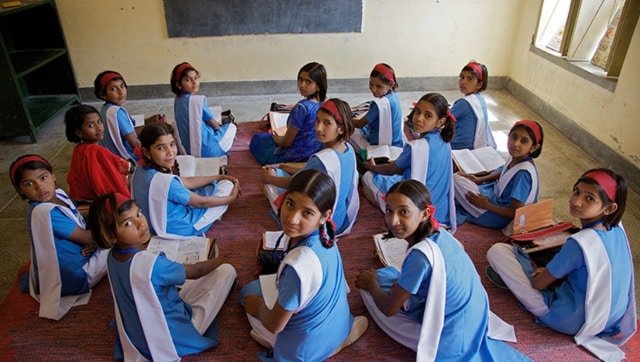19-year-old girl from Rajasthan becomes sarpanch of 7 villages

A crippling poverty that forced her out of school and onto the grazing fields with someone else’s livestock, a patriarchal society that would have married her off as a minor, and an alcoholic father that she lost when she was very young.
At the age of just 19, Pravina, a resident of Sakdara village in Pali district, overcome numerous obstacles to rise to the position of sarpanch of seven villages. She is currently an inspiration and a helper to many. She is committed to making sure local girls don’t have to fight like this to receive an education.
“I could have been a child bride who lived the rest of her life grazing cattle and doing household chores,” Pravina told PTI. “But I found hope at the right time and now if I find any girl who is not going to school, I make it a point to ensure that she finds the same hope as I did.”
Related Articles
But before she found the “hope”, her life was a maze of despair: acute poverty, an alcoholic father who had to take care four other kids, dropping out of school after Class 3 and the constant fear of being pushed into a child marriage.
Pravina, lovingly and popularly called “Papita” by her villagers, said she dropped out of school to graze others’ cattle for money, and also worked at her home, taking care of the household chores.
But two years later Kasturba Gandhi Balika Vidyalya (KGBV), a residential school for girls from disadvantaged groups, in Pali village, about 40km from her home in Sakdara village, came in her life.
A field worker from an NGO called Educate Girls convinced her family to send her to the school where she could get a free education. Her experience at the school not only changed her outlook towards the life but also taught her the importance of schooling for girls.
“My father was an alcoholic, we lost him when I was in the residential school,” she said.
After she completed her schooling, she was married to a construction worker at the age of 18. She was the most educated woman in her in-laws’ family, which gave her the courage to contest sarpanch elections. “I fought the elections and once I became the sarpanch, I ensured that the maximum budget allocation is for education.”
She said had it not been for the education she got “I could have been a child bride who lived the rest of her life grazing cattle and doing household chores”.
“And now if I find any girl who is not going to school, I make it a point to ensure that she finds the same hope as I did. My in-laws’ family used to look at me with pride, there was no concept of sending girls to school in their family,” Pravina told PTI.
“The financial condition was no better at my in-laws’ place but I am glad they did not become an impediment in my journey.”
Pravina worked as the sarpanch of seven villages in Rajasthan—Roopawas, Kerla, Muliyawas, Raunagar, Sevra ki dhani, Moola ji ki dhani and Naru ji ki dhani, from 2014 to 2019.
“I ensured that the maximum budget goes to education. When families saw me they became less apprehensive about sending their girls to schools. During my term as sarpanch, I got a school constructed for girls,” she said beaming with pride.
Her tenure as a sarpanch is over, and Pravina says her fight for the cause is will go on.
“I go to different villages to enquire and see if there are any girl who is not going to school. Some girls also reach out to me to convince their parents about not restricting their education. I visit their homes, I connect them with the NGOs working in the sector, we find options for them where finances are a constraint,” she said.
“School teachers in the villages also invite me to interact with the girls about importance of education and since they can relate with me as I am one among them. Even if girls attend to household and not pursue higher education, they must go to school,” she added.
Pravina is also the poster woman for Educate Girls, which works for bringing out of school girls back to mainstream education.
“I once addressed the gathering at their foundation day, I did not even know that I could inspire so many. I met so many girls there who told me that the field workers narrated my story to their parents and then they were convinced about sending them to school,” she said.
(with inputs from PTI)

Atul Tiwari is a seasoned journalist at Mumbai Times, specializing in city news, culture, and human-interest stories. With a knack for uncovering compelling narratives, Atul brings Mumbai’s vibrant spirit to life through his writing.






